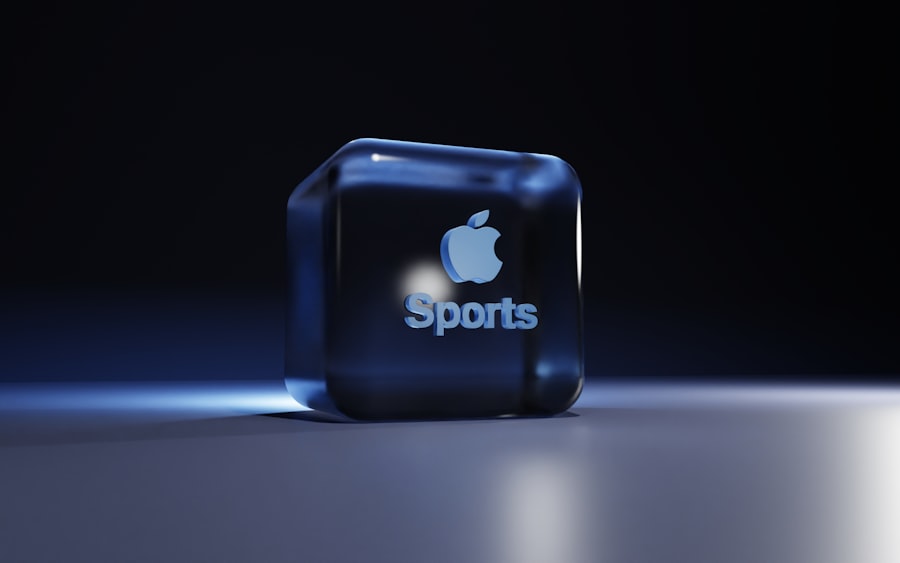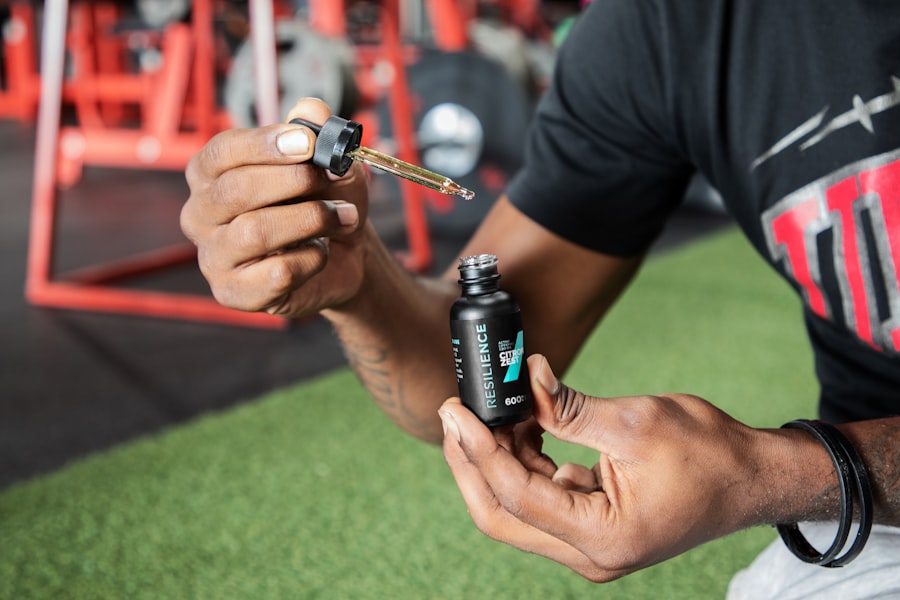In the competitive world of sports, personal branding has emerged as a crucial element for athletes seeking to distinguish themselves from their peers. Personal branding refers to the process of developing a recognizable and unique identity that resonates with fans, sponsors, and the media. For athletes, this identity is not merely about their performance on the field; it encompasses their values, personality, and how they engage with their audience.
A strong personal brand can lead to increased visibility, enhanced marketability, and greater opportunities both during and after an athlete’s career. The significance of personal branding in sports is underscored by the fact that fans today are not just interested in the game; they are invested in the athletes themselves. This shift has been propelled by the rise of social media and digital platforms, which allow athletes to connect with their audience on a more personal level.
For instance, LeBron James has successfully cultivated a brand that extends beyond basketball, engaging in social issues and philanthropy, which has endeared him to millions. His ability to leverage his platform for advocacy has not only solidified his status as a sports icon but has also attracted lucrative endorsement deals that align with his values. Thus, understanding the importance of personal branding is essential for athletes aiming to maximize their potential both on and off the field.
Key Takeaways
- Personal branding is crucial for athletes to stand out and create lasting impact beyond their sport.
- Identifying and showcasing your unique qualities helps define your personal brand effectively.
- Utilizing social media and digital platforms is key to expanding your reach and engaging with fans.
- Consistency and authenticity in your image build trust and strengthen your brand identity.
- Collaborations and a strong support team enhance brand opportunities and help manage reputation challenges.
Identifying Your Unique Selling Proposition as an Athlete
To effectively build a personal brand, athletes must first identify their unique selling proposition (USP). This is the distinctive factor that sets them apart from others in their sport. It could be a specific skill set, a compelling backstory, or a particular personality trait that resonates with fans.
For example, Serena Williams has built her brand around her incredible athletic prowess combined with her advocacy for gender equality and body positivity. Her USP lies not only in her achievements on the tennis court but also in her ability to inspire others through her journey and activism. Identifying a USP requires introspection and an understanding of one’s strengths and weaknesses.
Athletes should consider what makes them unique in their sport and how they can communicate that to their audience. This could involve reflecting on personal experiences, values, and aspirations. For instance, an athlete who has overcome significant adversity may choose to highlight their resilience as a core aspect of their brand.
By articulating a clear USP, athletes can create a narrative that resonates with fans and differentiates them in a crowded marketplace.
Leveraging Social Media and Digital Platforms for Brand Building

In today’s digital age, social media platforms have become indispensable tools for athletes looking to build their personal brands. Platforms like Instagram, Twitter, TikTok, and YouTube offer athletes the opportunity to share their stories, engage with fans, and showcase their personalities beyond the confines of their sport. For instance, NBA players like Stephen Curry have utilized social media not only to connect with fans but also to promote their off-court ventures, such as business endeavors and philanthropic efforts.
Effective use of social media involves more than just posting highlights from games; it requires a strategic approach to content creation and audience engagement. Athletes should aim to share authentic content that reflects their personality and values while also being mindful of their audience’s interests. This could include behind-the-scenes glimpses into training routines, personal anecdotes, or even candid moments that showcase their humanity.
By fostering genuine connections with fans through social media, athletes can cultivate a loyal following that enhances their overall brand.
Creating a Consistent and Authentic Image as an Athlete
| Metric | Description | Example | Importance Level |
|---|---|---|---|
| Social Media Engagement | Measures interaction with fans through likes, comments, and shares | 10,000 average likes per post | High |
| Brand Consistency Score | Assessment of uniformity in messaging, visuals, and tone across platforms | 85% consistency across all channels | High |
| Authenticity Rating | Audience perception of genuineness and relatability | 4.5 out of 5 based on fan surveys | High |
| Media Mentions | Number of positive mentions in press and interviews | 25 positive articles per month | Medium |
| Community Engagement | Participation in community events and charitable activities | 5 events per quarter | Medium |
| Personal Storytelling | Frequency and quality of sharing personal experiences and challenges | Weekly blog or video updates | High |
| Fan Loyalty Growth | Increase in dedicated followers and fan club members | 15% growth annually | High |
Consistency and authenticity are paramount when it comes to personal branding in sports. An athlete’s image should align with their values and the narrative they wish to convey. This means that every interaction—whether on social media, in interviews, or during public appearances—should reflect the same core message.
For example, Tom Brady has maintained a consistent image centered around hard work, discipline, and excellence throughout his career. His branding is reinforced by his commitment to fitness and nutrition, which resonates with fans who admire his dedication. Authenticity is equally important; fans can often sense when an athlete is being disingenuous or trying too hard to fit a certain mold.
Athletes should embrace their true selves and share their genuine experiences with their audience. This could involve discussing challenges they face or sharing personal interests outside of sports. By being open and relatable, athletes can foster deeper connections with fans who appreciate their authenticity.
A consistent and authentic image not only strengthens an athlete’s brand but also builds trust with their audience.
Collaborating with Brands and Partners for Mutual Benefit
Collaboration with brands can significantly enhance an athlete’s personal brand while providing mutual benefits for both parties involved. Athletes often partner with companies that align with their values and resonate with their audience. For instance, Nike’s collaboration with Colin Kaepernick exemplifies how an athlete’s brand can intersect with corporate interests while also making a powerful statement about social justice.
Kaepernick’s activism became synonymous with Nike’s messaging, resulting in increased visibility for both the athlete and the brand. When considering partnerships, athletes should seek out brands that reflect their personal values and resonate with their target audience. This alignment ensures that collaborations feel authentic rather than transactional.
Additionally, successful partnerships can lead to innovative marketing campaigns that leverage an athlete’s unique story or skills. For example, endorsements that highlight an athlete’s journey or philanthropic efforts can create compelling narratives that engage fans while promoting the brand effectively.
Managing Your Reputation and Handling Controversies Effectively

In the realm of sports, reputation management is critical for maintaining a strong personal brand. Athletes are often under intense scrutiny from the media and public, making it essential to navigate controversies effectively. When faced with negative publicity or criticism, athletes must respond thoughtfully and strategically.
For instance, when Kevin Durant faced backlash for his decision to join the Golden State Warriors, he took to social media to address his critics directly while also emphasizing his desire to win championships. Proactive reputation management involves monitoring public perception and being prepared to address potential controversies before they escalate. Athletes should cultivate relationships with media outlets and engage in open communication to clarify misunderstandings or misrepresentations.
Additionally, having a crisis management plan in place can help athletes respond swiftly and effectively when challenges arise. By taking ownership of their narrative and addressing issues head-on, athletes can mitigate damage to their reputation while reinforcing their personal brand.
Building a Strong Support Team for Your Personal Brand
Behind every successful athlete is often a dedicated support team that plays a crucial role in shaping and managing their personal brand. This team may include agents, publicists, marketing professionals, and advisors who understand the intricacies of brand building in sports. Each member brings unique expertise that contributes to the overall strategy for enhancing an athlete’s visibility and marketability.
Choosing the right support team is essential; athletes should seek individuals who share their vision and values while also possessing industry knowledge. A skilled agent can negotiate lucrative endorsement deals while a publicist can manage media relations effectively. Additionally, having a strong digital marketing team can help athletes navigate social media landscapes and create engaging content that resonates with fans.
By surrounding themselves with knowledgeable professionals who understand the nuances of personal branding, athletes can focus on their performance while ensuring their brand remains strong.
Sustaining and Evolving Your Personal Brand Over Time
Personal branding is not a one-time effort; it requires ongoing attention and evolution as an athlete’s career progresses. As athletes grow both personally and professionally, so too should their brands adapt to reflect these changes. This evolution may involve exploring new interests or pivoting towards different causes that resonate with them at various stages of life.
For example, many retired athletes have successfully transitioned into new roles as commentators, coaches, or entrepreneurs while continuing to leverage their personal brands. Michael Jordan’s evolution from NBA superstar to successful businessman exemplifies how an athlete can sustain relevance by diversifying their interests and adapting their brand accordingly. By continuously assessing their goals and audience perceptions, athletes can ensure that their personal brand remains dynamic and relevant over time.
In conclusion, personal branding in sports is a multifaceted endeavor that requires careful consideration of various elements—from identifying unique selling propositions to managing reputations effectively. Athletes who invest time in building a strong personal brand can unlock numerous opportunities throughout their careers while leaving a lasting impact on fans and communities alike.



